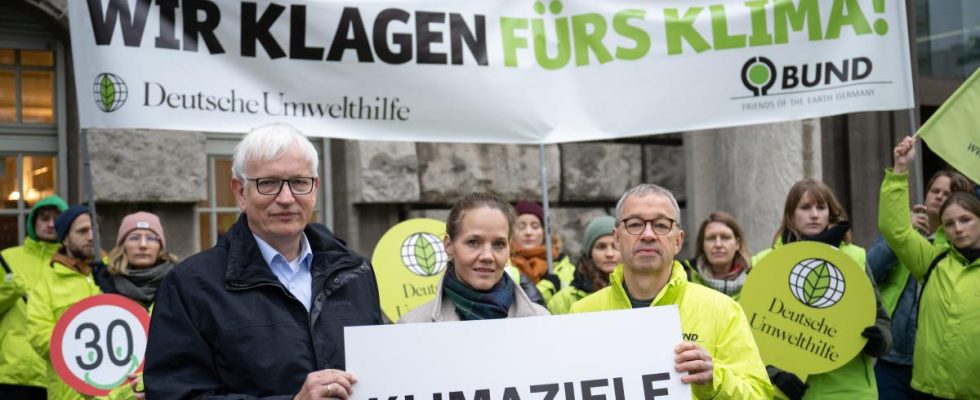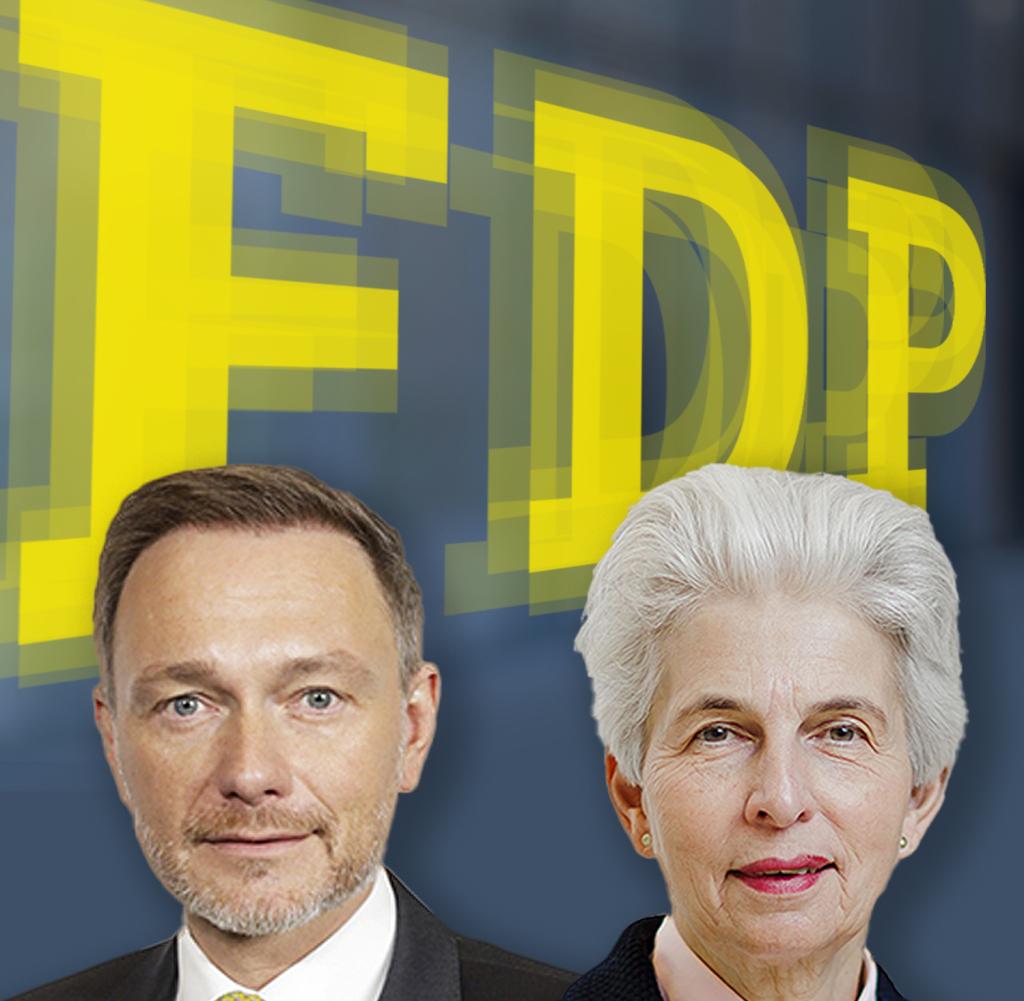Higher Administrative Court condemns the federal government’s climate protection policy as unlawful
Higher Administrative Court condemns the federal government’s climate protection policy as unlawful
The Berlin-Brandenburg Higher Administrative Court has condemned the federal government’s climate protection policy as unlawful on several points and obliged the traffic light coalition to submit immediate programs. The court thus upheld lawsuits brought by the environmental associations BUND and Deutsche Umwelthilfe.
The government is obliged to present emergency programs for climate protection. The Berlin-Brandenburg Higher Administrative Court decided this after a lawsuit from environmental associations. Transport Minister Wissing did not present any programs, even though limit values were exceeded.
DThe Berlin-Brandenburg Higher Administrative Court has condemned the federal government’s climate protection policy as unlawful on several points and obliged the traffic light coalition to submit immediate programs. On Thursday, the court upheld lawsuits brought by the environmental associations BUND and Deutsche Umwelthilfe (DUH). According to the current Climate Protection Act, the government must present programs for the transport and buildings sectors so that Germany can get back on track with the legal requirements from 2024 to 2030. An appeal was allowed.
The federal government violated the requirements of the current law in both 2021 and 2022 in the transport and buildings sectors. Transport Minister Volker Wissing (FDP) rejected an emergency program that was actually mandatory because the Climate Protection Act was being changed. This has been initiated by the government, but has not yet been decided in the Bundestag. Following a ruling, the federal government must now decide on additional emergency measures to remove greenhouse gases from traffic and buildings.
Amount of greenhouse gases in both sectors exceeded
The associations went to court because, in their view, the responsible ministries did not act adequately when the permissible amount of greenhouse gases was exceeded in the two sectors.
In the current climate law there is a requirement in paragraph 8, according to which the responsible ministry must counteract this with an immediate program if the permissible amount of greenhouse gases for a sector is exceeded in a year. The Climate Protection Act requires greenhouse gases to be reduced by 65 percent by 2030 compared to 1990. A good 40 percent reduction was achieved last year.
After the verdict was announced, the DUH called on the federal government to immediately decide on emergency measures such as a speed limit, the reduction of climate-damaging subsidies and a renovation offensive for schools and kindergartens, for example.
Government is considering revision
The federal government representatives had argued that the savings did not depend on individual measures in the respective sectors, but on the total amount of CO₂ emissions that would ultimately be saved by 2030. In the building sector in particular, measures generally only had a delayed effect.
The federal government is now considering whether to appeal. When asked, the Federal Ministry of Economics and Climate Protection, headed by department head Robert Habeck (Greens), said: “The court has expressly permitted the appeal. The federal government will evaluate the verdicts and their justifications in detail as soon as they are available in writing and examine how to proceed.” An appeal on the verdict would have a suspensive effect.
The Ministry of Economic Affairs and Climate Protection further explained: “The basic principle is that the federal government is pursuing an ambitious climate protection policy in order to achieve the goals set out in the Climate Protection Act and to close the remaining climate protection gap. With the measures contained in the 2023 climate protection program, the federal government can close up to 80 percent of the existing climate protection gap by 2030.” The federal government is working on closing this gap.
Top Green Party politicians see the court ruling as strengthening their demand for more money for climate protection. “Even though we have set the necessary course to make up for a large part of the grand coalition’s climate deficit, there is still a lot to be done,” said party leader Ricarda Lang. “We must not let up on financing climate protection now.” The government will now find ways to make necessary investments in climate protection and competitiveness, she added.
Katharina Dröge, one of the two parliamentary group leaders in the Bundestag, said: “Especially now we need secured financing for the continuation of the projects in the climate and transformation fund.” One way to ensure this would be “a legally newly established special climate protection fund”.
Note: An earlier version stated that the Berlin-Brandenburg Higher Regional Court made the ruling. We have corrected this and apologize.


